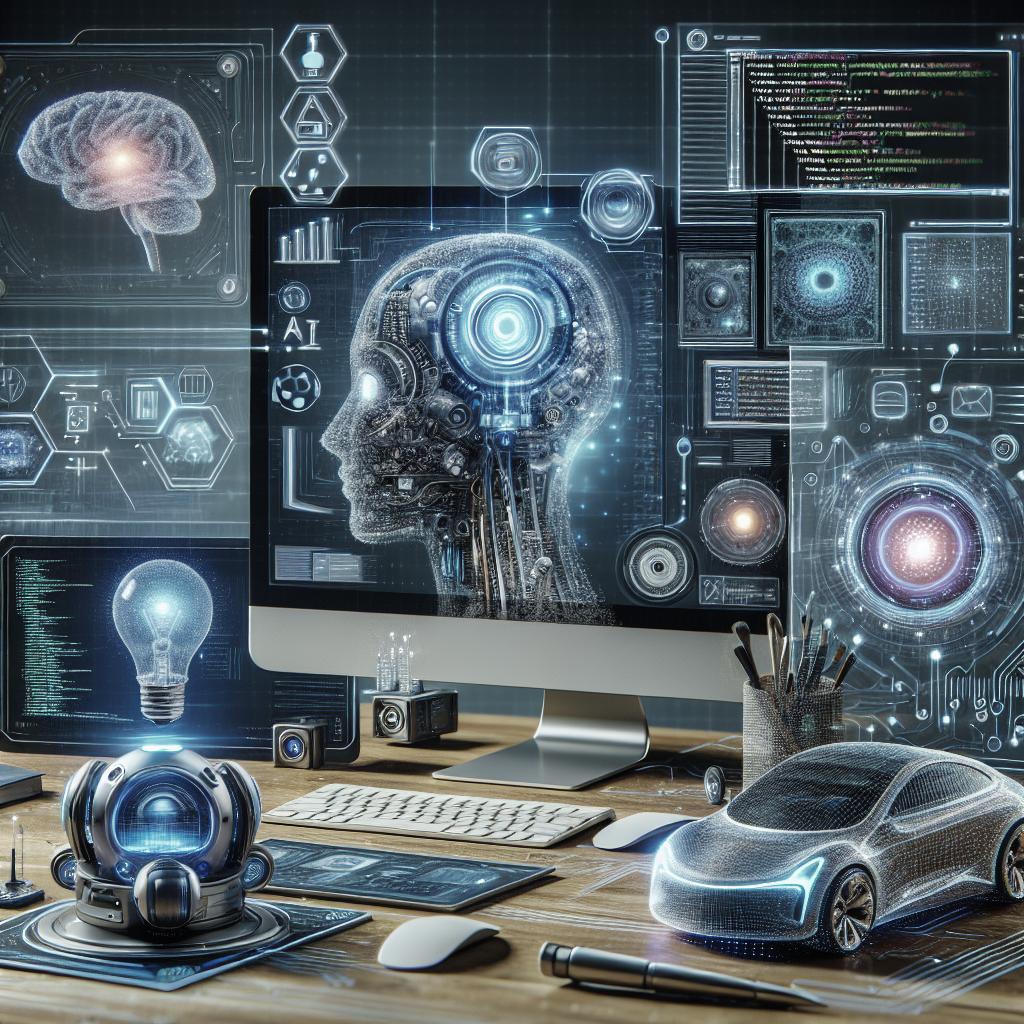“`html
How to Integrate AI into Daily Life
Artificial Intelligence (AI) has become an integral part of our daily routines, seamlessly blending into various aspects of life. From virtual assistants that manage schedules to AI-driven diagnostic tools in healthcare, this technology enhances convenience, productivity, and efficiency. This blog post explores ten key areas where AI integration can significantly benefit individual users, ranging from content creation to smart home automation. By understanding how AI functions in these domains, individuals can better harness its potential to improve their personal and professional lives. As AI technologies continue to evolve, they present new opportunities for enhancing daily living through intelligent automation and decision-making.
1. Virtual Assistants
Virtual assistants such as Siri, Alexa, and Google Assistant have become familiar companions in many households. They help manage daily tasks with simple voice commands, such as setting reminders, sending messages, or providing weather updates. These assistants leverage natural language processing to understand and respond to user queries effectively.
Furthermore, virtual assistants are continuously becoming more sophisticated, with the ability to learn user preferences and habits over time. This learning capability allows for more personalized interactions, thereby increasing their usefulness in our day-to-day lives. As technology advances, virtual assistants are expected to manage even more aspects of our lives autonomously.
2. Content Creation
AI-driven tools are revolutionizing content creation by assisting writers, designers, and marketers in generating high-quality material more efficiently. Platforms like GPT-3 can produce human-like text, offering ideas, drafting emails, or even writing entire articles with minimal human intervention.
Beyond text, AI also assists in visual content creation through applications like Canva and Adobe Sensei, which provide auto-generated design suggestions and enhancements. These tools empower creators to streamline their workflows, allowing them to focus on refining their creative processes rather than spending time on repetitive tasks.
3. Social Media Algorithms
Social media platforms utilize AI algorithms to personalize user experiences by analyzing behavior patterns. These algorithms determine what content appears in users’ feeds, prioritizing posts that align with their interests and engagement history.
This personalized content curation keeps users engaged for longer periods and improves their overall experience on the platform. Creators and businesses can also leverage these insights to tailor their content, optimizing reach and engagement through targeted advertising and strategic posting strategies.
4. E-commerce Recommendations
E-commerce platforms like Amazon and eBay employ AI to enhance user experience through personalized shopping recommendations. By analyzing past purchases, browsing behavior, and other user data, these platforms suggest products that match individual preferences.
This personalized approach not only elevates customer satisfaction but also increases sales by ensuring that users discover products they are more likely to purchase. As AI technology advances, these recommendation engines are poised to become even more accurate and impactful in influencing shopping decisions.
5. Healthcare Diagnostics
AI integration in healthcare is transforming diagnostic processes, enabling faster and more accurate identification of medical conditions. AI algorithms analyze vast datasets, such as medical images and patient histories, to aid doctors in diagnosing diseases like cancer, cardiovascular conditions, and more.
This technological advancement not only improves diagnostic accuracy but also accelerates the treatment process, ultimately enhancing patient outcomes. As AI continues to evolve, its role in aiding healthcare professionals will expand, paving the way for more accessible and efficient healthcare solutions.
6. Language Translation
AI-powered language translation tools like Google Translate have made communication across languages more accessible than ever. By utilizing machine learning algorithms, these tools can translate text and speech in real-time, facilitating global communication and understanding.
Although not perfect, AI translation continues to improve with each iteration, making it a valuable resource for travelers, businesses, and multicultural collaborations. As AI develops, language translation tools will become more accurate and nuanced, bridging language barriers even further.
7. Autonomous Vehicles
AI is at the forefront of autonomous vehicle technology, driving the evolution of self-driving cars and other transportation innovations. These vehicles rely on AI algorithms to process data from sensors and cameras, allowing them to navigate roads safely and efficiently.
The advancements in autonomous vehicles promise to revolutionize transportation, increasing safety and reducing congestion on roads. While still in development, the future of AI-driven transportation is poised to bring significant changes to how we travel and commute.
8. Email Filtering
AI algorithms are crucial in managing email inboxes by efficiently filtering spam and prioritizing important messages. Email services like Gmail use AI to analyze patterns in email content, sender reputation, and user behavior to sort emails accordingly.
This intelligent filtering saves users time while ensuring that critical communications are not missed. Continued improvements in AI email filtering will enhance its accuracy, further optimizing how individuals manage their digital communications.
9. Personal Finance and Investments
AI is increasingly being adopted in the finance sector to assist individuals with managing personal finances and investments. Tools like robo-advisors offer personalized investment strategies by analyzing market trends and user financial goals.
Moreover, AI-powered applications help users track spending, create budgets, and even automate savings, ensuring better financial management. As AI technology evolves, its applications in finance will expand, providing more sophisticated tools to assist users in achieving their financial objectives.
10. Smart Home Automation
Smart home automation is a rapidly growing field where AI enhances the convenience and efficiency of daily living. AI-powered systems control devices like lighting, thermostats, and security cameras, creating an interconnected and responsive home environment.
These systems learn from user habits and preferences, adjusting settings automatically to optimize comfort and energy efficiency. As smart home technology advances, AI will play an increasingly significant role in making homes more adaptable and efficient, ultimately improving the quality of life for their inhabitants.
Final Thoughts
| Area | AI Integration Benefits |
|---|---|
| Virtual Assistants | Task management, personalized interactions |
| Content Creation | Efficient writing and design tools |
| Social Media Algorithms | Personalized content feeds, improved engagement |
| E-commerce Recommendations | Personalized shopping experiences, increased sales |
| Healthcare Diagnostics | Faster, more accurate medical diagnoses |
| Language Translation | Cross-language communication, real-time translation |
| Autonomous Vehicles | Enhanced safety, efficient transportation |
| Email Filtering | Efficient email management, prioritization of important messages |
| Personal Finance and Investments | Automated financial management, personalized investment strategies |
| Smart Home Automation | Convenience, energy efficiency, adaptive environments |
“`


